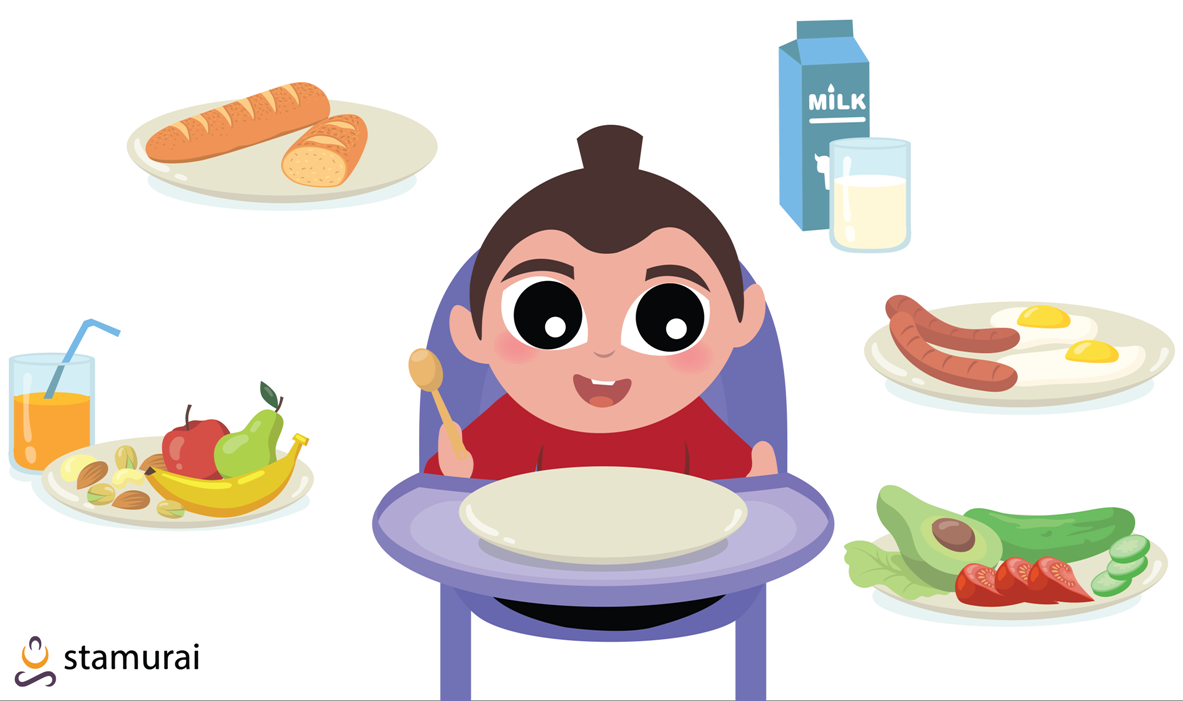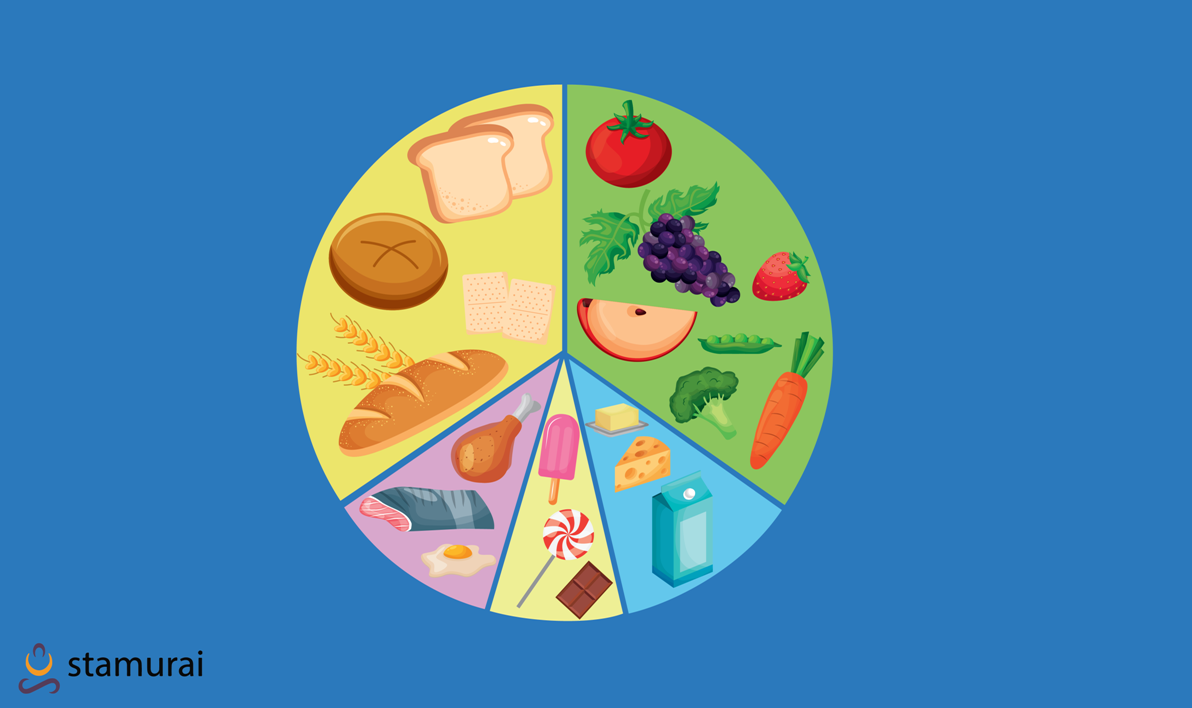Nothing is more important than a balanced diet for the proper and timely development of a child. Proper nutrition is necessary for the physical and mental development of a child. So, if a toddler is a picky eater does it precede one or more developmental issues? Similarly, is it possible to treat or manage a developmental disorder by modifying a child's diet?

What Causes Speech Delay in Children?
Speech delay may be a symptom of one or multiple disorders in children. These may include –
- Loss of hearing
- Autism
- Cerebral palsy
- Selective mutism
- Intellectual disability
You can find more about the causes of speech delay in children right here. Understanding the potential causes may help you estimate the effect(s) diet may have on the rate of their speech development.
What Is The Link Between Food And Delay In Speech Development?
1. Food Allergies and Hearing Loss
If a child suffers from frequent ear infections, they may be at risk of losing their hearing. Research shows that consuming food high in allergens may increase the inflammation inside the ears and lead to repeated infections.
Specific food isn't directly related to hearing problems and delayed speech. Ignoring food allergies can become a significant contributor to speech problems in children.
2. Food and the Immune System
When a child does not consume a balanced diet they may suffer from multiple deficiencies. Deficiency of folic acid, zinc, iron, copper, selenium, and vitamins A, B6, C, D, and E can lead to a weakened immune system.
Not enough essential fatty acids in the food can reduce immune cell production in the body. This in turn can lead to repeated infections.
An underdeveloped immune system can facilitate ear infections and lead to hearing loss in children. Several studies have linked it to delayed speech in toddlers and school-aged adults.
3. Deficiency Diseases and Neurological Development
A child with autism may show aversion towards specific food. If they avoid a particular food group entirely, they may begin to show signs of vitamin and/or mineral deficiencies.
Nutrient deficiencies may deter a child’s neurological development. A child who doesn’t receive complete nutrition may experience delayed development of long-term brain functions and cognition.
Therefore, a child with autism who is averse to distinct food groups may show exacerbated signs of speech delay if they don't consume enough Vitamin B6, B12, and B9.
4. Anxiety and Food-related allergies
Psychologists and speech pathologists now classify selective mutism as a social anxiety disorder. Children who experience anxiety may experience breathlessness, unnatural warmth or coldness, shivering, rapid heartbeat, and sweating.
These symptoms overlap with some signs of food allergies. Children allergic to dairy and gluten can especially feel breathless, warmth, shivers, and rapid heartbeat, along with cramps in the stomach.
Although food allergies do not and should not induce anxiety, the shared signs might prompt a similar result. The child may not feel comfortable enough to talk in class or outside the home after consuming food high in allergens.
5. Food, and Mental Health
A comparatively new field of study, psychobiotics, focuses on the effect of gut microflora on a person's mental health and development. Consumption from a very narrow spectrum of food can lead to unbalanced stomach acids and enzymes. That can disrupt the normal gut ecosystem.
The absence of the micronutrient absorbing microflora in the gut can lead to improper neurological development. It can harm a child’s mental wellbeing and productivity.
When a child’s nutritional needs are not met they can experience a wide range of symptoms including delayed development.
Can Changes in a Child’s Diet Improve Their Speech Development?
While we have expanded on how malnutrition and improper nutrition can hamper a child’s natural growth and development, we are NOT saying that speech delays can be treated or cured with special diets.

You can go through the facts and myths about speech delays to know which factors play a role in causing speech delay in toddlers.
Food and Primary Speech Delay
An SLP (speech language pathologist) can identify speech delay in children as young as 2-years old. The SLP can typically determine the potential causes of speech and language delay in children.
A child with primary speech delay may have normal comprehensive skills, intelligence, articulation skills, and emotional relationships.
Expressive and receptive language disorders are both examples of primary speech delay. These are not self-correcting conditions, but they respond well to speech therapy.
No known research highlights the effectiveness of changing a child's diet to improve their spoken language skills. Food has little to no impact on primary speech delays in children. The only way to help your child is to consult an SLP as early as possible and seek scientific speech therapy.
Food and Secondary Speech Delay
Secondary speech delays are when conditions like autism spectrum disorder (ASD), hearing loss, selective mutism, cerebral palsy, and/or severe stuttering cause delayed development of speech in children.
As we have discussed above, certain components in food like milk proteins (casein, whey), eggs, seafood (shellfish), and gluten can agitate the digestive system of children with allergies, celiac disease and Crohn's disease.
These foods certainly do not help boost a child’s health if they are particularly predisposed to food intolerances and allergies.
You may want to get a full allergy test done for your child if you are noticing signs like –
- Increased agitation
- Restlessness or hyperactivity
- Poor concentration
- Shorter than the usual attention span
- Lack of proper sleep
- Unnatural appetite (sudden increase or decrease)
Try to exclude the food items as per the reports from their diet. However, make sure to talk to a pediatrician. They must receive the correct doses of vitamins, minerals, essential short-chain amino acids, good fats, and fibers.
If necessary, include supplements in your child’s diet as per their pediatrician’s recommendations.
What’s The Take-Home Message?
If your child is a picky eater but does not have any developmental disorders, you should talk to a pediatrician and a dietician. They can tell you how to introduce new food to your child. You can try new recipes and cuisines to pique your child's interest in trying new food.
A child requires proper nutrition to ensure timely physical and mental development.
If your child has autism spectrum disorder (ASD), cerebral palsy (CP), selective mutism, or expressive language disorders, you should always ask their SLP. Do not make sudden changes in their diet without consulting their pediatrician first.
Children with ASD may not be tolerant of new flavors and textures. Introducing new food groups to their diet may add to their distress. The same is true for any child who experiences social anxiety (selective mutism).
If you have reason to believe that your child isn’t receiving all the necessary nutrients, speak to their SLP as well as a recommended dietician.










